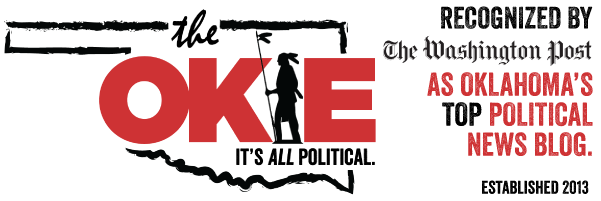Dr. Cox: Mullin Bill Empowers Pharmacists To Provide Treatments
Mullin Bill Empowers Pharmacists To Provide Treatments
By Dr. Doug Cox
With much of rural Oklahoma experiencing a chronic shortage of physicians, seniors may lack adequate access to the health care services they need. According to the Association of American Medical Colleges (AAMC), Oklahoma ranks 44th out of 50 states in the number of primary care physicians per capita.
As a physician myself, I understand the frustration of my colleagues, when they are overbooked, and of my constituents, when they cannot schedule a timely appointment with their own doctor. As an ER physician, I see many patients in ER because they cannot get a timely appointment with their primary physician.
For seniors, physician shortages create a number of challenges. There may be mobility or transportation issues that make it extremely inconvenient and stressful to travel long distances to see a doctor. And for those struggling to manage a chronic condition such as high blood pressure or diabetes, inadequate access to care can result in serious complications.
These problems are expected to get worse in coming years as the baby boom generation ages. AAMC estimates there will be a nationwide shortage of up to 90,000 physicians by 2025.
A solution? Make greater use of the nation’s pharmacists. Instead of forcing patients to travel long distances for immunizations and blood pressure checks, for example, we can bring health care closer to home by having patients visit their local pharmacy instead.
The vast majority of Americans—some 95%—live less than 5 miles from at least one community pharmacy. Unlike most medical offices, pharmacies are generally open beyond normal business hours and over the weekend. Thus, they can be a convenient location for care when medical offices are closed, or too far away.
Pharmacists already provide a number of patient-care services, including immunizations, chronic disease management, and health screenings and tests. Pharmacists are permitted to administer the seasonal flu vaccine in all 50 states, and many states are expanding that authority to include additional vaccines, such as pneumonia and shingles. Pharmacists can also be helpful when it comes to chronic disease management for diabetes, heart disease and other conditions that become more complicated as patients age. I welcome working with the pharmacists to share patient education and wellness tasks to allow me more time to care for the sick.
To integrate pharmacists more fully into patient care for Medicare beneficiaries, a change in the law is needed. The Pharmacy and Medically Underserved Areas Enhancement Act, H.R. 592, would recognize pharmacists as non-physician providers under Medicare Part B and make them eligible for reimbursement for services they provide to seniors in underserved areas.
I am pleased that our own Congressman for eastern Oklahoma, Markwayne Mullin, has taken a leadership role in this debate by cosponsoring H.R. 592. Mullin joins a bipartisan group of 145—and growing every week—cosponsors. We are fortunate Congressman Mullin understands the problems seniors in our part of the state face in finding the care they need and is working to implement a solution.
Utilizing pharmacists more fully is a critical component of meeting the demand for health services for seniors in our state in the midst of provider shortages. Congress should pass this bill as quickly as possible.
Doug Cox, MD, represents the people of District 5 in the Oklahoma State Legislature.
###

